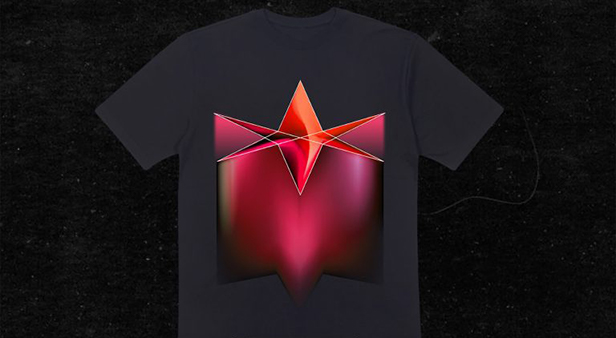October 15, 2019
Band Sells Personalized Merch Based on Spotify Streaming
The interesting case study occurs at the crossroads of music, technology and promotional products.
Bring Me the Horizon, a Grammy-nominated rock band from the United Kingdom, is putting a tech-fueled spin on its branded merchandise through an offering that enables fans to buy personalized band swag based on their Spotify listening preferences.
aмo ιn coloυr
— Bring Me The Horizon (@bmthofficial) October 15, 2019
cυѕтoм @Spotify ιnғlυenced мercнhttps://t.co/j7bqxt4Ei7 pic.twitter.com/WIyaIVuXC1
To get the band-branded T-shirt, fans go to a site called http://amoincolour.com – a nod to Bring Me the Horizon’s 2019 album amo. Visitors then follow prompts to connect with their Spotify credentials and to select their six favorite songs from amo. The Echo Nest, a music data intelligence platform, then performs a bit of digital age wizardry, analyzing the users’ amo track preferences along with previous Spotify listening habits that involve Bring Me the Horizon. Factors like the loudness and energy of music tastes are weighed.

Oli Sykes from Bring Me the Horizon performs at a concert in Germany.
From there, fans receive a virtual sample of a T-shirt that features a unicursal hexagram symbol, which the band often uses in its iconography. The symbol is suffused in color that’s based on the fan’s musical predilections. Ultimately, would-be buyers can receive 10 possible color outcomes.

A Bring Me the Horizon T-shirt option from the band’s “amo in colour” website.
Interestingly, you can participate even if you don’t have Spotify. You just have to tap in via email and put in your Bring Me the Horizon song choices for the design magic to occur. Don’t have Bring Me the Horizon on your Spotify? No worries, you can still take part, as the T-shirt color design will be based on the six songs you select from the group’s most recent album.
As The Verge suggested here, some users might have privacy concerns. “In order to create your custom shirt, you’ll have to grant the album’s label — Sony Music Entertainment — a lot of access to your Spotify data. Spotify’s API — an online protocol that allows companies to share data — was questioned earlier this year by Billboard for giving overreaching permissions to labels. In particular, Billboard said Sony Music Entertainment often asks for the most access, and the company is still asking for the same set of permissions here, including the ability to stream and control Spotify on your other devices. One thing has changed: at the time, these permissions were hidden in drop-down menus. Now, they’re not.”
Nonetheless, the concept of using personal music streaming data to create a music-to-mood-specific color on a T-shirt design is novel and interesting. For promotional products distributors, it can serve as a potential source of inspiration for creative customized merch initiatives with end-clients in the music market. Potential in that market is soaring.
As traditional sales of compact discs and the like plummet and listeners only download/stream select songs, musical artists have increasingly turned to branded merchandise as a primary source of revenue. The Licensing Industry Merchandisers’ Association reports that sales of music merchandise tallied $3.1 billion in 2016 – a 10% increase over the prior year. Furthermore, in the previous two years, the volume of branded music merchandise available for consumer purchase has tripled, according to Edited, a company that specializes in retail analytics.
Savvy companies in the print and promo space are keen to capitalize on music merch’s potential. Virginia-based Custom Ink, which specializes in ecommerce sales of custom-printed apparel and other items, recently acquired Sidestep – a website and mobile app devoted to selling concert merchandise. Custom Ink made the acquisition through its subsidiary Represent, a Los Angeles-based company that specializes in partnering with celebrity influencers and others on branded merchandise initiatives. With Sidestep, musical artists can sell swag to fans before, during and after live events.
Recent significant acquisitions in the music merch world include The Thread Shop, Sony Music’s merchandising division, buying the music merch division of New York City-based The Araca Group over the summer.
Sony’s acquisition occurred only about a half-year after its competitor Universal Music Group bought Los Angeles-based merchandiser Epic Rights. Last year, Warner Music Group spent about $180 million to purchase EMP, a Germany-based retailer of music and entertainment swag.
